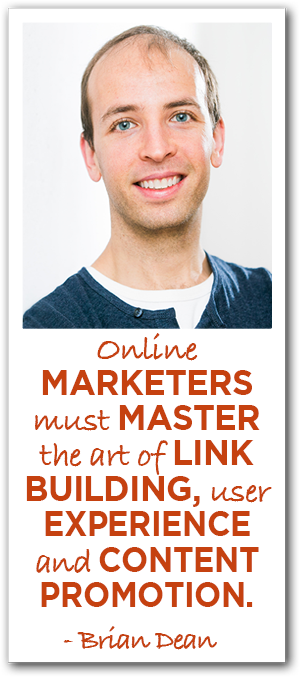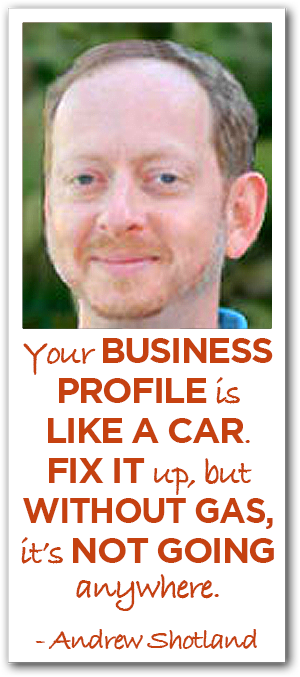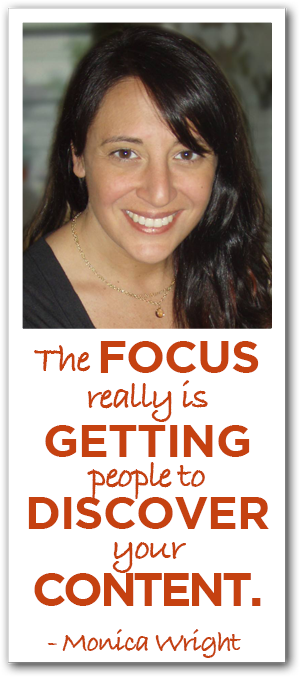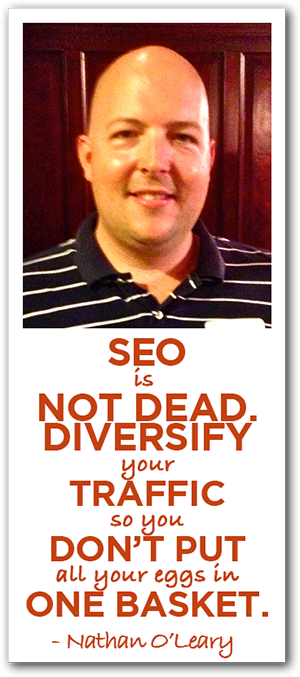 Do you have a brick and mortar small business? Have you submitted your business address and contact info across all the major directories? Do you keep your information consistent and updated?
Do you have a brick and mortar small business? Have you submitted your business address and contact info across all the major directories? Do you keep your information consistent and updated?
If not, then you’re not alone. A lot of small businesses don’t know about the tips and tools to optimize their local SEO and fully take advantage of local business directories. By using Google and social media, we can reinforce the legitimacy of our business in the online world.
This week, we bring in Nathan O’Leary, owner of Mainely SEO, to talk about how we can fine tune our local SEO and get the most out of local business directories.
Podcast: Play in new window | Download
Subscribe:
Big Ideas:
How did you find yourself providing SEO services to small businesses?
- I started Mainely SEO as a side business from my full time job and I was working with family and friends that have businesses that needed websites and just found that when they needed a website a lot of the times they needed that website to rank in Google to drive them more qualified traffic so I started investing a lot of time and energy researching what SEO is, what it isn’t, good techniques, bad techniques, black hat, white hat.
- I kind of self taught through most of it.
What do you say to the people that say “SEO is dead?”
- I would say don’t put all your eggs in one basket.
- Definitely diversify your traffic sources – email, social, SEO – so if you if you’re penalized or your traffic source dries up you’re not relying heavily on one traffic source.
- We know that Facebook is changing their algorithms just like Google changes theirs, so you can’t promise on just any one source.
Can small businesses compete with large corporations that have huge budgets? Can they hold their own when it comes to SEO?
- They can definitely hold their own. Google is getting smarter from where people are searching from so they can detect their location by IP address or even if you’re not including location based searches when you’re googling something.
- So if you’re a small business offering cupcakes and if somebody’s looking for cupcakes, they’re more likely to find you in the search engines because Google can tell that you’re a local business related to the area that person is searching from.
- I would also add, that if you’re blogging, creating great content that also just serves your local market is a great way to get that search traffic.
What is local SEO and why is it so important to small businesses?
- It’s definitely serving the clients that are in your general area. So if somebody is searching for something, they’re on their mobile device and they’re maybe walking around a city looking for products or services and you’re a local small business, then you definitely want to show up in those search results whether it’s your website that’s showing up in the search results or potentially a directory listing that lists your business as well as a couple of your competitors.
For the local search results, what can we do to get found in those? Is that a different algorithm? Do we need to use special tips or tricks to get found on that local search page?
- There’s definitely a lot of things you can do.
- Just making sure that you’re in GoogleMaps and having a Google+ local page for your business is definitely important.
- Back on your website, make sure your address is clearly visible and in text format (and not in an image) will definitely alert Google that your a business in a certain city or town.
Now you mentioned Google Maps. What is it and how do I make sure I’m listed on Google Maps?
- You can go to maps.google.com and search for your business and search by your business or brand name to see if you’re in there.
- There are other online tools that will measure your online presence like Yext and Moz Local (formerly Get Listed) and they’ll go out and scan the web and all these other directories to see if you’re listed in there and if you are, how optimized your listing is with pictures, a link back to your website, your hours of operation, and things of that nature.
- There’s a lot you may not have heard of, but there are also some bigger ones like Info Group, Factual, Axom, and New Star are a couple that may be unfamiliar to some of the listeners but those are actual data aggregators that funnel some of the information to the smaller directories and also GPS car and things of that nature.
If I want to use Yext or Moz Local, is this a free service, a one-time deal? How does it all work?
- Yext charges a flat yearly fee and some of the listeners may have used that before and put in their business information and I know some of the clients we’ve dealt with get a bad taste with Yext because they’re relentless and they keep calling you and won’t let go until you tell them to buzz off.
- You can still use the service if you don’t mind the harassing phone calls to just check your listings.
- The one I prefer is Moz Local and that will scan for different results and you can use that as a roadmap and you can certainly and go to those directory yourself and claim those listings and optimize them with a nice description of your business, using keywords you know people will be searching for.
- You can add photos to those listings. You can add yourself to multiple categories and it’ll give you a score based on how optimized your listing is.
- So, it may take some time and you can go through each individual one and claim them or pay a yearly fee for a service that has these companies go in and do it for you.
You also mentioned Google+ local pages. What do we need to do with the Google+ pages? How does this all work?
- You do need to have a Google account for yourself.
- You need to go into the Google+ business pages and create a listing or claim a listing.
- Google will either call you with a pin number or send a postcard to your business and you have to enter that pin to verify that you’re that business and it opens up a larger dashboard that you can see how many times you’re appearing in those local results. You can see how many times people are clicking on your website or phone number or even asking for driving directions. You can even see the hotspots in what towns people are looking for you.
If I’ve created a personal profile in Google and a business page, is that my Google+ local page or my business page?
- Great question. It could be just a business page. What you want to look for is a little check mark next to your Google+ business name on the profile page.
- That little checkmark will say something like “local verified.” That will verify that it’s set up as the proper local business page.
Should I try to merge my Google business page with my Google local page? Is it worth it?
- I definitely think it’s worth it. You don’t want to confuse Google or your customers that find your Google+ page. Instead you want to direct them to that Google local page.
- There is a way to merge them and it’s a little difficult and there’s a great article that explains how to do that.
Are there certain businesses that local search is more important for? Or should every small business be concerned about SEO?
- I think if you’re a brick and mortar location and you have people walking in and visiting your location then it’s more important to have a listed in the maps directories because is someone is searching for you, and they’re looking for your products or services and walking around a town. You definitely want to show up in that.
- If you’re more of a general contractor or home builder or something like that, there are definitely benefits to being listed in some of those directories but it might not be as important because you’re not asking people to come to a physical location and you’re not getting walk-in traffic.
I’ve heard that reviews matter. If this is true, how can we get more reviews and where should we direct people to leave reviews for us?
- You definitely want to ask your happy customers to leave a review on your local listings and ask them to leave a review on Yelp or Yahoo Local, and Google Maps so you have a nice slice of reviews and are diversified throughout the web.
- That can definitely help your listings and rankings.
- One thing to note on Google Maps is that you might have seen business with the star rating under their name and that happens when they have more than three reviews listed so if you’ve got one or two, try to get that third one and Google will turn on those starts below your name to get you more attention.
How about negative reviews. Should we worry about them? Will they hurt our local listings?
- I don’t think they will actually harm your rankings.
- You obviously don’t want your customers to read something bad about your business, so maybe try to resolve it with the customer if there’s a chance to do that and ask them to take it down if you can make it right.
- After you’ve claimed these listings the business owner has the option to respond to these people. That’s always a positive sign if there’s something negative out there listed under your business, then a potential customer can see that you’re taking the time to respond to that negative review and it shows that you care.
Does our physical location in a city matter when someone is doing a search on something like “Portland, Maine tacos?”
- It’s definitely a myth. I’m not sure. Google hasn’t really come out and said it.
- The belief is that if your business tends to be in the center of the city that you’re more likely to get those rankings and show up in those searches than a location outside of the greater city center.
What should we do if we have more than one retail space? How do we handle all the stuff you’ve shared with us so far?
- If you’re a pizza joint and you have a couple locations in a town. I see no problem with making sure each one of your businesses is listed separately in the maps directories and with Google because you may be targeting different people and different neighborhoods and if there’s anything uniquely distinctive about your multiple locations then include that in the description of your business so that you’re not duplicating content on each one of those listings.
Is there any connection with social media and local SEO? Can we be doing anything in social media that will have an impact on our local listings?
- Google may take some social signals and take that into consideration in their algorithm.
- If you’re on Facebook and have a business page, just make sure that your address is clearly listed and the more of those different social networks you’re registered and listed on definitely build more of those citations.
- The more citations you have out there the more Google is going to see those and collectively assume you’re more of an established business. Maybe you’ve been around a little bit longer so that can all help you get a little bit higher in the rankings.
Any other tips, tricks, or things we should avoid to help us get found in local?
- Be sure to have your address on your website and making sure it’s in text format and making sure it’s not in an image because Google may not be able to index the text if it’s buried in an image.
- Make sure the whois information is publicly available and that it matches the same name and phone number you have on your site and directories. I have a feeling that Google can see that and has another checkmark if you have that populated correctly.
I’ve heard that even how you spell your address across these directories (e.g., “street” vs. “st.) that it might actually dilute our visibility if they’re not the same. Is that true?
- Yes, so having that match across the web and having congruent information with your name, address, and phone number is definitely important.
- Another thing, is that if you happen to have an 800 number, I’d recommend using your local phone number listed on those directories.
- If you’re a business and you have a PO box, Google doesn’t favor that because anyone can go and create one, so sign up for a post mail box at a UPS store or a place that allows you to have a mailbox with a physical address can overcome the hindrance of a PO box. It’ll end up being 123 Maine Street xxx instead of a PO Box number.
Note: After the show Nathan shared a link with me that just came out of SMX West, a popular SEO conference. It says to hold off on merging listings and be patient with Google. Use your best judgment!
Related post: What to do when you get a bad online review…and how to fix it.
Juicy Links:
Rich Brooks
Local is the new Social
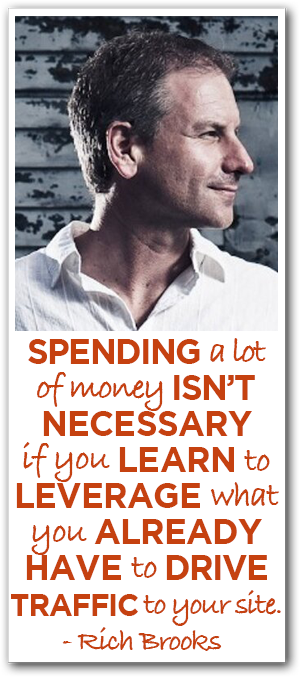 The Marketing Agents Podcast host, Rich Brooks, answers actual listener questions that have been sent in. He advises on SEO and driving increased traffic to your website, how to advertise your business so it stands out in the crown and reminiscences on wise words issued from past guests of the show. He also offers suggestions on one listener’s current website, in hopes that making a few changes will give them the boost in business that they are looking for.
The Marketing Agents Podcast host, Rich Brooks, answers actual listener questions that have been sent in. He advises on SEO and driving increased traffic to your website, how to advertise your business so it stands out in the crown and reminiscences on wise words issued from past guests of the show. He also offers suggestions on one listener’s current website, in hopes that making a few changes will give them the boost in business that they are looking for.